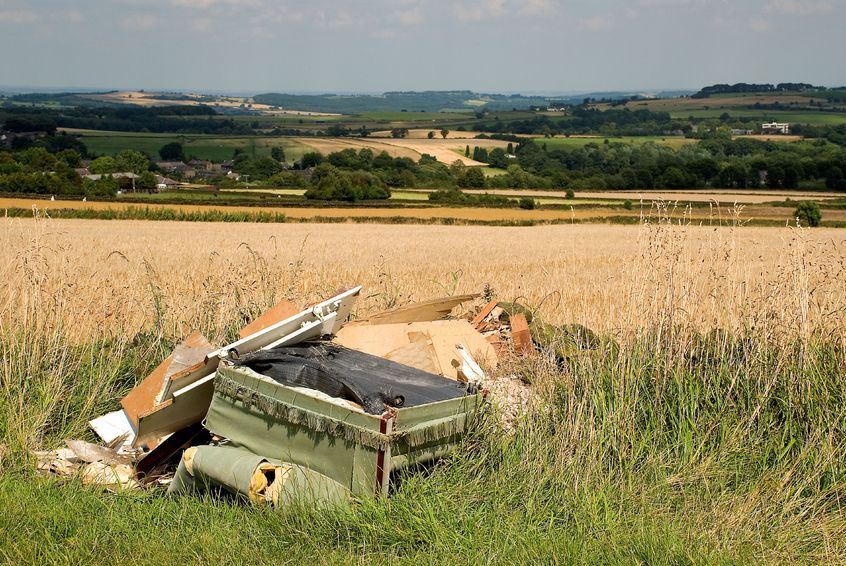
Councils across the UK are being asked to make a collective New Year’s resolution to continue the zero-tolerance approach to fly-tipping far beyond the festivities.
The Local Government Association says councils will be using powers to issue fixed penalty notices up to £400 and seize and destroy vehicles used by offenders as part of a “pre-Christmas, zero-tolerance” nationwide initiative.
The cost of clearing up fly-tipping in England has hit nearly £50 million, with councils having to deal with almost 900,000 incidents every 12 months.
However, the problem isn’t confined to streets and lay-bys, but also farm land used to grow crops and graze livestock. The CLA, which represents landowners, farmers and rural businesses, says it is receiving more and more reports from members with rubbish being dumped on their land almost every day of the week.
'£800 per incident'
CLA President Ross Murray said the organisation receives 'regular reports' from farmers of fly tipping, particularly when land is located on the fringes of urban areas.
He said: “The waste involved is not just the occasional bin bag but large household items from unwanted sofas to broken washing machines, building materials and even hazardous waste.
“The estimated average cost to rural businesses of this anti-social behaviour is £800 per incident and is a continuing and damaging blight on our countryside.
“The opportunity to issue fixed penalty notices and/or seize vehicles has been available to councils since May of this year. It is high time they began to use these powers and make people think twice about dumping their rubbish illegally.
“The crackdown should not just be for the Christmas period but throughout 2017. This will not only ease the pressure on the public purse, but also on demoralised farmers and landowners who are simply fed up with clearing up somebody else’s waste at their own expense.”
'Imperative for a tougher stance'
Mr Murray added that it was imperative the tougher stance of councils was mirrored by the punishments meted out by Magistrates Courts to fly-tippers.
He said: “The maximum fine is £50,000 or 12 months imprisonment if convicted in a Magistrates' Court, but this is never enforced. If it was, it might deter fly-tippers. Frequently, it costs more to bring an offender to court than the penalty actually imposed.
“The Government must take note of this blight on our countryside and put pressure on the Courts to enforce a much higher penalty to those who flout the law. There is no deterrent if the fines imposed are going to cost criminals less than disposing of the rubbish legally.”
